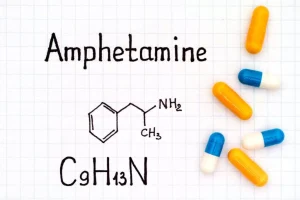Don’t Be Fooled by These 5 Lies About Alcohol

Do not tolerate hurtful or negative comments addressed towards them. These comments can result in lasting damage to a child’s psyche. Remember, it’s not your responsibility to « cure » their AUD. You just happen to love someone who is probably going to need professional treatment to get healthy again.
What to Expect After Your Talk

Checking in with another person in your life who’s trying to stop drinking can certainly help you ride out a craving with someone who understands. External triggers refer to the environmental cues you link to alcohol, including places, times, people, and situations. Internal triggerstypically involve memories, thoughts, emotions, or physical sensations that prompt the urge to drink. Cravings won’t necessarily affect everyone who cuts back on alcohol. Still, they’re pretty common, especially if you drink regularly or your alcohol use falls into the “heavy drinking” category (binge drinking 5 or more days in the last month). Healthy lifestyle habits are also a key part of recovery.

Follow us on social media
I can’t count the number of times I why cant i control my drinking woke up in the middle of the night hot, restless, and uncomfortable after having a few drinks. If there are any people who encourage you to drink too much, try to avoid them for the first month or so while you get used to your new style of drinking. If you are constantly surrounded by peer pressure to drink, start seeking out new friends or family members who don’t drink as much. The most straightforward drinking diaries just record how much you drink each day, but the more you can keep track of, the better you will understand your own drinking patterns, and thus be able to control them.
Talk about it
- If you turn to alcohol to manage emotional distress, the added overwhelm can prompt the urge to drink, making success seem even more out of reach.
- In her case, after about a year and a half of experimenting with moderation she realized that she wanted to quit drinking entirely.
- “Alcohol cravings can be very intense, especially in early recovery,” explains Ruby Mehta, licensed clinical social worker and director of clinical operations for digital recovery platform Tempest.
The incident alarmingly raised the question as to whether he meant what he said—namely, about Jews being responsible for all world wars. No content on this site, regardless of date, should ever be used as a substitute for direct medical advice from your doctor or other qualified clinician. Don’t allow the disappointments and mistakes of the past affect your choices today—circumstances have probably changed. You don’t have to create a crisis, but learning detachment will help you allow a crisis—one that may be the only way to create change—to happen. This episode of The Verywell Mind Podcast, featuring multi-platinum award-winning singer Bryan Abrams, shares his sobriety journey and how he found a treatment that actually worked.
- Changing habits requires repeat experimentation and practice.
- If you’re living with alcohol use disorder (also known as alcoholism), you’ll likely benefit from additional medical interventions.
- If you’re living with alcohol use disorder, quitting drinking is important for your health.
- The avoidance common in the socially anxious may be initially overcome through alcohol, but requires repeated doses if an individual wants to re-engage in the future.
- However, for someone with an alcohol dependence, that expectation may turn out to be unreasonable.
- It’s much easier to make positive changes when you’ve got help and support from other people.
- Understanding her motivation to drink helped Samantha Sebastian, 32, recognize those moments when they happened so she could actively make a better choice.
Knowing why you drink is essential, says Cyndi Turner, LCSW, LSATP, MAC, a Virginia therapist specializing in addiction treatment and alcohol moderation. Learn more about the health effects of drinking alcohol here. Jeanette Hu, AMFT, based in California, is a former daily drinker, psychotherapist, and Sober Curiosity Guide. She supports individuals who long for a better relationship with alcohol, helping them learn to drink less without living less.

How To Stop Drunk Spins: Does Throwing Up Help?
The first step to applying the « golden rule of habit changing » is to identify the cue and reward in your drinking habit. As drinking is often a habit that is repeated countless times, many drinkers find they are no longer consciously aware of the cue and rewards that play out in their drinking habits. To help drinkers like me change their relationship with alcohol, I created a free drinking journal to help drinkers gain awareness of the cues and rewards that play out in their drinking habits. Dr. Streem says that if your goal is to stop drinking altogether, you’re more likely to have success quitting all at once, rather than weaning off alcohol. But that advice changes if you’re living with alcohol use disorder. Whether you’re sober curious, know for sure you’re ready to quit, or fall somewhere in between, Dr. Streem shares advice for how to stop drinking.
Reach out for support
These changes can lead to tolerance, or a need to drink more in order to feel the same effects. They can also leave you more sensitive to alcohol’s effects and raise your risk of withdrawal symptoms. But in spite of your goals and no matter how committed you are to changing your habits around drinking, avoiding alcohol might prove a little more difficult than you expected. If you have a problem with alcohol, you might have decided on your own that it’s time to stop drinking. Or maybe your doctor told you that it’s important for your liver — and your body in general. Either way, you’re probably facing more struggles than just the physical act of avoiding alcohol.
: Sober living | Tags:
Vous pouvez suivre les prochains commentaires à cet article grâce au flux RSS 2.0

 Service commercial : 01 80 88 43 02
Service commercial : 01 80 88 43 02
Répondre
Désolé vous devez être connecté pour publier un commentaire.